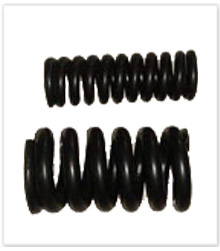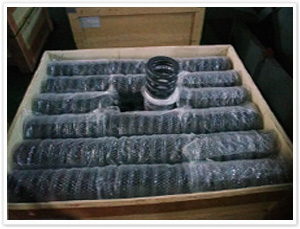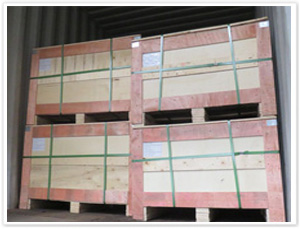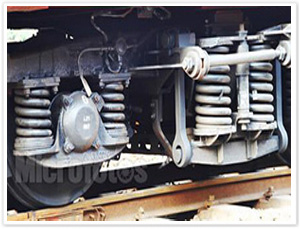- Home
- Coil Spring

1、Coil Spring
SUYU provides various types of coil spring (Helical Suspension Spring) product based on standards of UIC, AR, EN, TB, DB, BS, and JIS. It is used onlocomotive, passenger car, wagon and mining machinery, etc. Here are the factors affecting the locomotive spring fatigue strength.
Size: 3/4", 1/2", 5/8"
1. Yield strength
The yield strength and fatigue limit of the material interact with each other. Generally speaking, higher yield strength comes with higher fatigue strength. So, in order to increase the fatigue strength we should try to increase the yield strength of spring material, or to use the material with good yield strength and fatigue limit. For the same material, the coil spring with fine grain structure has higher yield strength than that with coarse grain structure.
2. Apparent condition
Maximum stress mostly occurs in the surface of the spring material, so the yield strength depends much on surface quality of the spring. The flaw, defect and scar caused by rolling, drawing and coiling are always blamed for the spring's fatigue break. The spring displays less surface roughness and stress concentration, its fatigue strength shows higher. In other word, the fatigue limit decreases with the increasing surface roughness. In the case of the same roughness, the extent of decreasing of fatigue limit is varied with different steel grades and different coiling methods. For example, the decreasing extent of a cold coil spring is little than that of a heat spring. During heat treatment, the oxidation progress leads to decarburization phenomenon which makes the spring material surface course, thus fatigue strength of the spring gets reduced.
3. Specifications
a. Material: 60Si2MnA or 51CrV4
b. Strict stiffness tolerance: ±5%
c. 100% MT test
d. Approval Test: 3×106 cycles fatigue test with good performance
e. Manufacturing standard: TB/T 2211 or EN 13298
f. Hot rolling and cutting off




 Wechat: +8615901613885
Wechat: +8615901613885